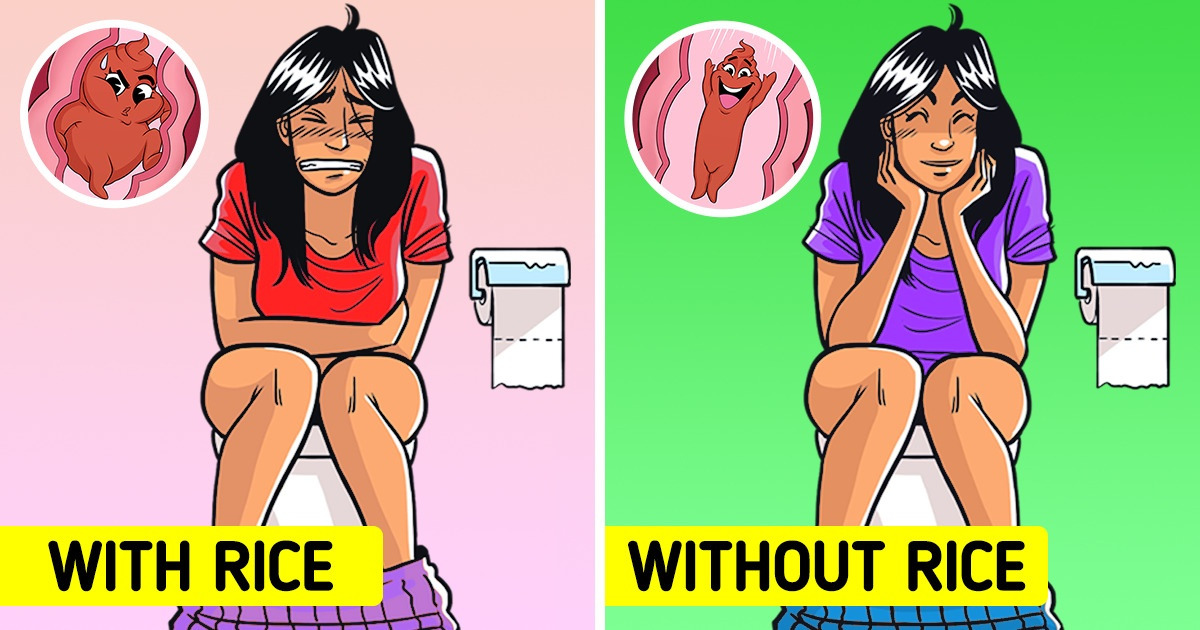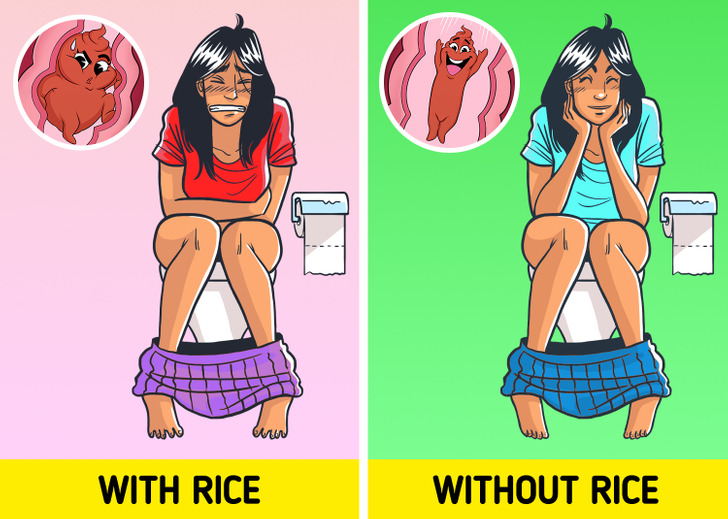20 People Who Hit the Reset Button on Their Lives


Rice is a staple food for more than half of the world’s population, and it is consumed regularly by people all over the globe. Even though brown rice is considered healthier than white rice because it is richer in vitamins and minerals, people still prefer to munch on white rice.
However, this food is still a good source of magnesium, phosphorus, manganese, and other minerals, but we at Bright Side got curious about finding out what might happen if we eat rice on a regular basis.

Many studies have reported that higher fiber intake is linked to a lower risk of constipation. In fact, one study reported that every additional gram of fiber leads to a 1.8% lower likelihood of constipation. Processed grains such as white rice are lower in fiber, and that’s why, for people who experience constipation, it is better to reduce their intake of white rice.
White rice has a high glycemic index, and according to a study, eating it on a regular basis may raise your risk of type 2 diabetes. However, rice is one of the foods that often finds its place on our dining tables, so as an alternative, it’s better to consume whole-grain rice instead of white. Even though it’s still high in carbs, its antioxidants, fiber, minerals, and vitamins may help in controlling blood sugar.
White rice is a processed and refined food and because of that, people who want to lose weight might find it difficult to do so. It is also low in fiber, which will make you hungry faster, and thus, you’ll reach out for more food. So, if you are a rice lover, it’s better to eat black or brown rice, which are higher in fiber and can help you with losing your belly fat.
Even though rice doesn’t contain cholesterol, it can still lead to increased triglycerides or cholesterol levels. Eating rice in high quantities leads to excess sugar in the blood, which can cause a spike in triglycerides, hence raising cholesterol levels.
Rice accumulates more arsenic than any other food crop. And, a high intake of arsenic can lead to an increased risk of heart diseases and cancer. Arsenic is also toxic to nerves and might affect brain function. People who follow a rice-based diet are at a particularly higher risk of experiencing these conditions.
How often do you eat white rice?











